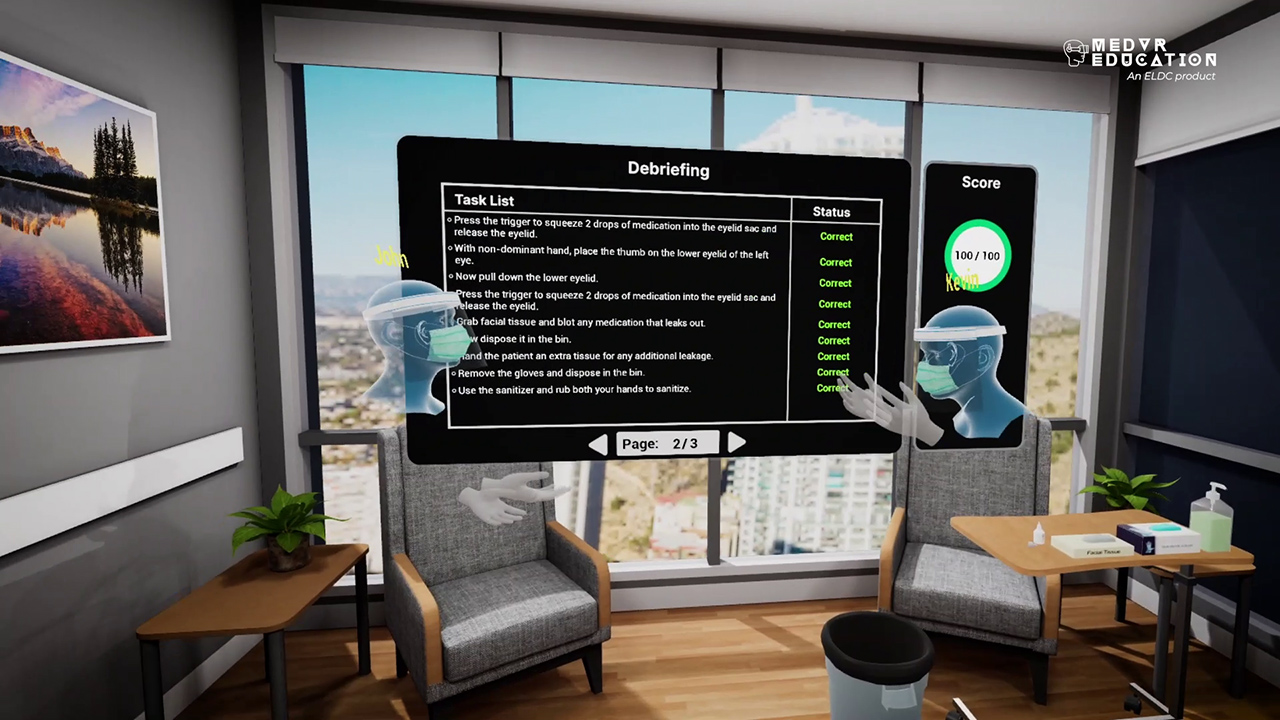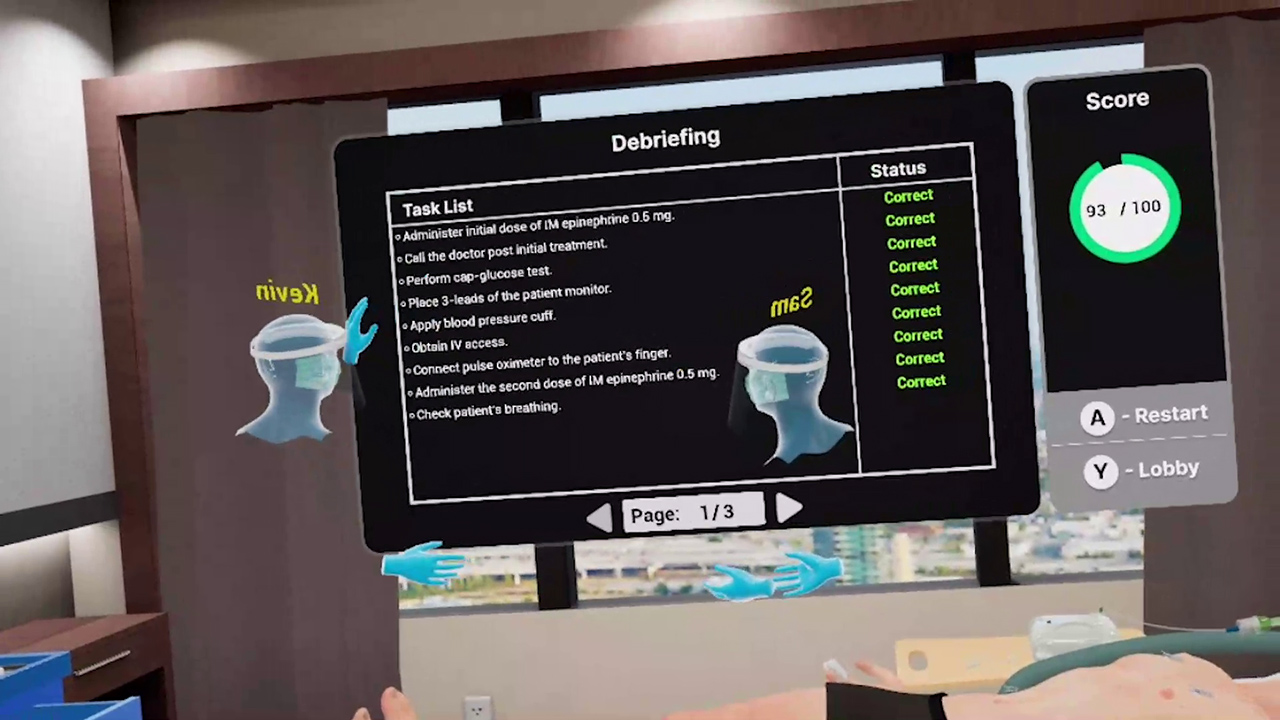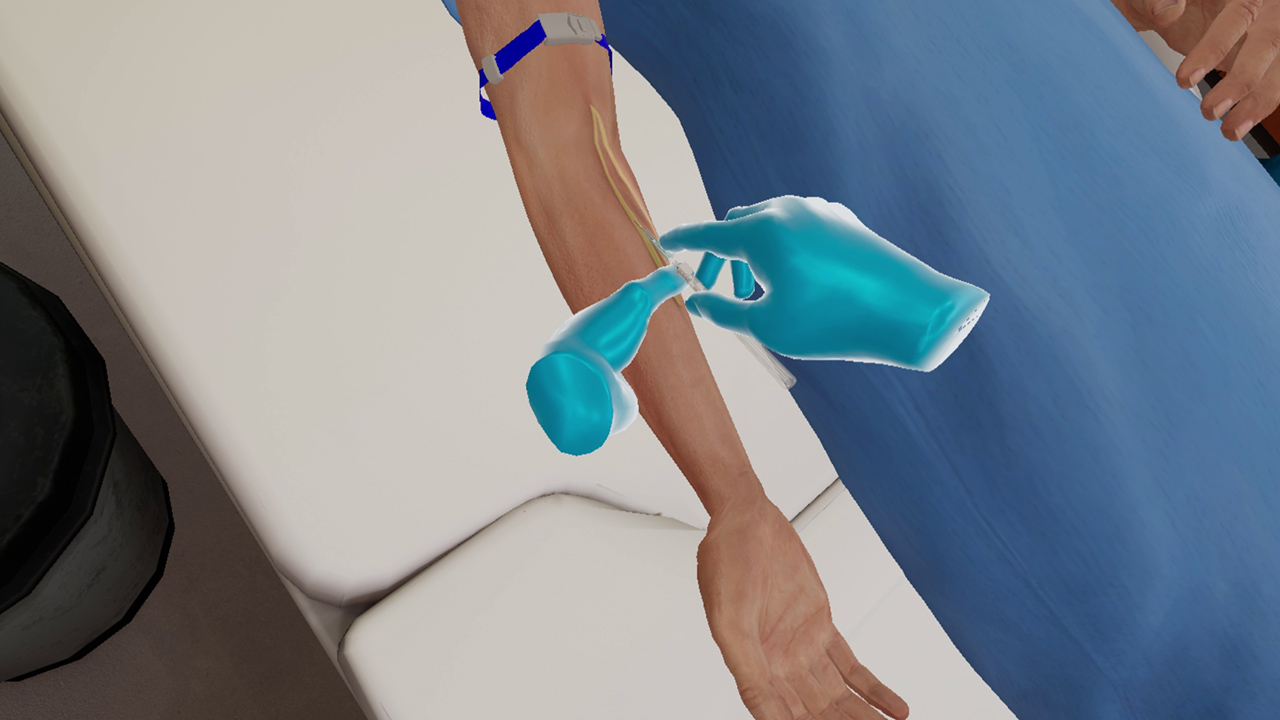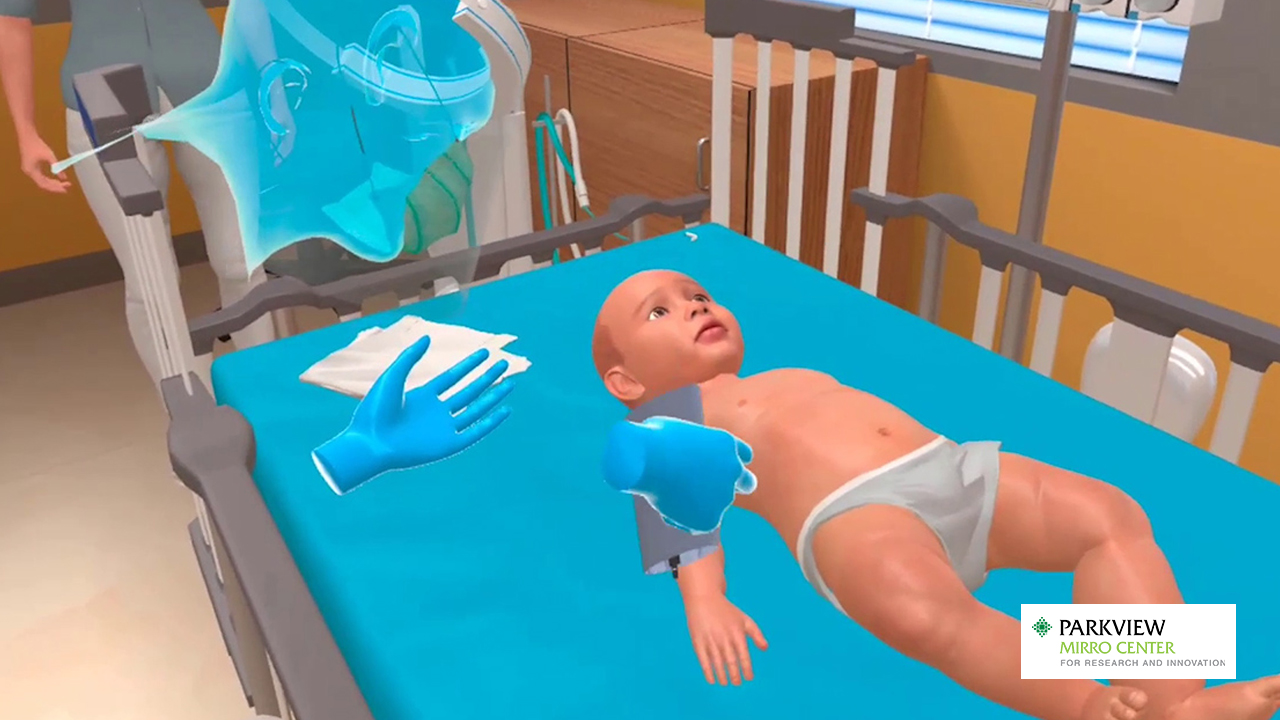
How significant is debriefing in a simulation-based VR training?
Reflecting on one’s actions is a good way to analyze the outcomes, be it the positives or the negatives. Debriefing is similar to this post task-completion analysis. It could be in a real-life setting or after a training session. This particularly carries significance in critical situations where person’s lives are at stake, such as in the field of healthcare.
Healthcare is all about caring for the wellbeing of other individuals. It takes a good deal of training and learning to try to live up to this objective with practical training being the only way to achieve efficiency. Simulations are an effective way to help learners experience real-life medical situation, including critical ones. Performing in realistic situations means facing true-to-life challenges. A training session can be said to be complete when the learner reflects upon the skills acquired, activities performed and understands ways to avoid mistakes to perform better. This is where debriefing steps in.
Purpose of debriefing
When applied in a healthcare simulation program, debriefing serves as an important tool in:
– helping learners recognize the effects of their actions
– learn from their mistakes
– identify areas that need improvement
Simulations place learners in realistic virtual environments where they get to think, act and perform as they would in real-life situations. They have the liberty to take chances here, make mistakes and understand what a particular course of action will lead to. The purpose of debriefing is to help the learner reflect upon the actions taken, decisions made, and review the outcomes.
Debriefing does not intend to identify errors or assign blame to any learner. Instead it aims to provide a psychologically safe environment for the learner by helping understand why a particular decision made sense at that particular time. It also helps the learner weigh the pros and cons of the actions taken and what could have been done to achieve better results.
MedVR Education Simulation Training and Debriefing
Training modules from MedVR Education place learners in a virtually simulated environment where they get to be part of self-paced sessions. These could be individual sessions or multiplayer. Each session is followed by a debriefing which is presented in the form of custom feedback points specific to the performance of the learner or the team, in case of multiplayer sessions. Depending upon the activities performed, feedback will broadly cover the following points:
– Was the patient assessment thorough?
Example: When assessing a possible case of sepsis, were all necessary questions asked?
– Were all necessary steps completed?
Example: When doing a CVC insertion, were all steps completed for the procedure?
– Was the patient administered the correct medication?
Example: In an identified pneumonia case, was the correct medication administered?
– Were the procedure steps performed in the correct sequence?
Example: When doing a head-to-toe assessment, were steps performed in the correct order?
– In emergencies, was the procedure completed within the ‘safe’ time period?
Example: When the patient is suffering an airway blockage, was oral airway management completed within the ‘safe’ time period?
Feedback allows the learners to contemplate upon their performance, review their actions, look into the shortcomings, and work towards a better performance.

Debriefing is provided for both single-player sessions as well as multiplayer sessions.
– Single player: When presented with the feedback, the learner has the opportunity to reflect upon the points presented, the errors made, the possible course of action that could have been taken, and steps that should be taken for a better outcome.
– Multiplayer: The feedback presented after a multiplayer session is applicable to the whole team. The team members can discuss these points via voice chat in real time, share knowledge, learn from one another’s experiences, and deliberate upon the steps that can be taken for a different or better patient outcome. If required, an observer can be a part of the team to witness their performance and later discuss the points brought up in the debriefing.
Debriefing is an essential part of any healthcare training program. The idea should be to assist learners in evaluating their own performance, identify their own mistakes, understand ways to perform better and work towards improved task completions.
Contact us to know more about VR in healthcare training, or visit MedVR Education to explore the various programs we offer.


